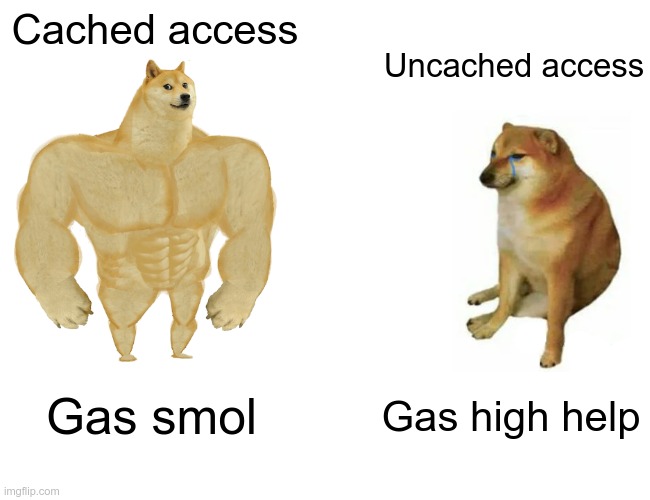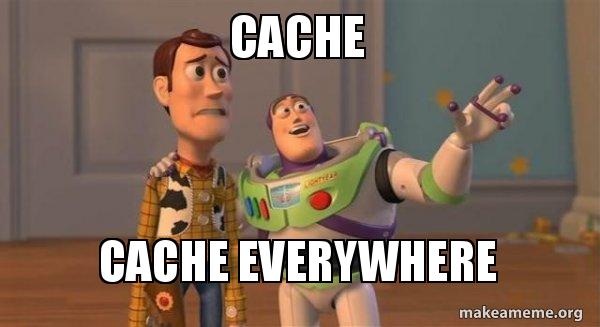Gas optimization Series Part -2
 Saksham Thapa
Saksham ThapaToday we'll briefly look into caching state variables

It is always better to cache a state variable if you can. What does caching a state variable even mean? It's a jargon word to scare off people. In essence, it's simply the act of copying state variable value to a local variable that resides in memory. Accessing a state variable uses SLOAD opcode which uses 100 gas for each load operation. Whereas accessing a local memory variable executes MLOAD opcode which only uses only 3 gas. That can make a huge difference if you're iterating over a list.
Let's look at the example:
pragma solidity 0.8.17;
contract MyContract{
uint256 counter;
function noCache() public {
for(uint i =0; i < 100; i++){
counter += 1;
}
}
function cache() public{
uint256 cachedCounter = counter;
for(uint i =0; i < 100; i++){
cachedCounter += 1;
}
counter = cachedCounter;
}
}
We have a counter state variable and two function that increments the counter 100 times. "noCache()" directly accesses the state variable every iteration, while "cache()" caches the state variable in a local cachedCounter and after the loop stores back to the state variable.
In the first non cached function with no gas the gas cost was:

While for the second cached function the gas cost was:

73997 gas from 118611, Big difference right? So always cache it if you can.

Subscribe to my newsletter
Read articles from Saksham Thapa directly inside your inbox. Subscribe to the newsletter, and don't miss out.
Written by
